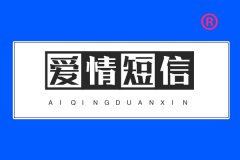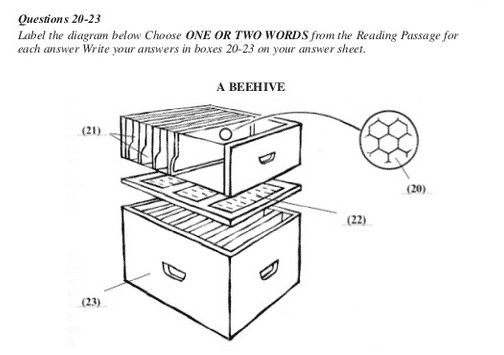
【句型专项归类】
1、肯定句:是指用肯定的语气来陈述的句子,如:I’m a student. She is a doctor. He works in a hospital.
There are four fans in our classroom. He will eat lunch at 12:00. I watched TV yesterday evening.
2、否定句:含有否定词或表示否定意义词的句子,如:I’m not a student. She is not (isn’t) a doctor.
He does not (doesn’t) work in a hospital. There are not (aren’t) four fans in our classroom.
He will not (won’t) eat lunch at 12:00. I did not (didn’t) watch TV yesterday evening.
☆注意☆
小结:否定句主要是在肯定句的基础上加上了否定词 “not”。有动词be的句子则“not”加在be后面,可缩写成“isn’t,aren’t”,但am not 一般都分开写。没有动词be的句子则要先在主要动词的前面加上一个助动词(do,does,did),然后在它后面加上“not”,你也可以把它们缩写在 一起如“don’t , doesn’t , didn’t )。这三个助动词要根据人称和时态来选择,其中“does”只用于一般现在时主语是第三人称单数的情况,而“did”只用于一般过去时,不论主语是什么人 称和数,都用“did” 。
3、一般疑问句:是指询问事实的句子,此类句子必须用“yes”,或“no”来回答。如:Are you a student? Yes, I am / No, I’m not.
Is she a doctor? Yes, she is. / No, she isn’t.
Does he work in a hospital? Yes, he does. / No, he doesn’t.
Are there four fans in our classroom? Yes, there are. / No, there aren’t.
Are you going to buy a comic book tonight? Yes, I am. / No, No, I am not. (Yes, we are. / No, we aren’t.)
Will he eat lunch at 12:00? Yes, I will. / No, I will not(won’t).
Are they swimming? Yes, they are. / No, they aren’t.
Did you watch TV yesterday evening? Yes, I did. / No, I didn’t.
☆注意☆
小结:一般疑问句是在肯定句的基础上
①把动词be调到首位,其他照写,末尾标点符号变成问号即可。
②没有动词be的句子则要在句首加上一个助动词(do,does,did)再把紧跟在后面的动词变回原形,末尾标点符号变成问号即可。
这三个助动词也要根据人称和时态来选择,其中“does”只用于一般现在时主语是第三人称单数的情况,而“did”只用于一般过去时,不论主语是什么 人称 和数,都用“did” 。一般疑问句有个重要的原则就是问和答要一致,即问句里的第一个单词(助动词)和简略答句里的这个词是一致的。
4、特殊疑问句:以特殊疑问词(what , where , who , which , when , whose , why , how等)开头引导的句子。此类句子应该问什么就答什么,不能用“yes 、no”来回答。如:
What is this? It’s a computer.
What does he do? He’s a doctor.
Where are you going? I’m going to Beijing.
Who played football with you yesterday afternoon? Mike.
Which season do you like best? Summer.
When do you usually get up? I usually get up at 6:30.
Whose skirt is this? It’s Amy’s.
Why do you like spring best? Because I can plant trees.
How are you? I’m fine. / I’m happy.
How did you go to Xinjiang? I went to Xinjiang by train.
其中how又可以和其他一些形容词连用组成特殊疑问词组用来提问,如: how many(多少(数量)), how much(多少(钱)), how tall(多高), how long(多长), how big(多大), how heavy(多重)
例句:How many pencils do you have? I have three pencils.
How many girls can you see? I can see four girls.
How many desks are there in your classroom? There are 51.
☆注意☆
小结:
how many 用来提问可数名词的数量,主要有以上三种句式搭配,
How many + 名词复数 + do you have? 你有多少……?
How many + 名词复数 + can you see? 你能看见多少……?
How many + 名词复数 + are there…? 有多少……?
-
相关文章
- 小升初英语的学习方法
- 小升初英语的学习方法 小升初英语如何提高
- 小升初英语考试常见的八大句型
- 小升初冲刺英语巩固练习题及答案
- 小升初英语专项训练:完成句子及完形填空精练
- 小升初阶段必掌握的50句英语口语
- 长沙小升初英语作文:不同关系的过度语句
- 小升初英语重难点之一般疑问句
- 2018北京小升初英语备考专题及解析:并列句与名词性从句2
- 2018北京小升初英语备考专题及解析:完成句子2
德迅网 » 小升初英语复习重点之句型专项归类
免责声明:本文由网友提供互联网分享,不代表本网的观点和立场;如有侵权请联系删除。

 英文信件结尾处署名写在左边还是右边
英文信件结尾处署名写在左边还是右边 小学达到英语专四只能算“标配”?谁在助推
小学达到英语专四只能算“标配”?谁在助推 英语句子的连词(英语三个句子并列用什么连
英语句子的连词(英语三个句子并列用什么连 雅思阅读到底考你什么?
雅思阅读到底考你什么? 雅思阅读不同题型答题技巧
雅思阅读不同题型答题技巧